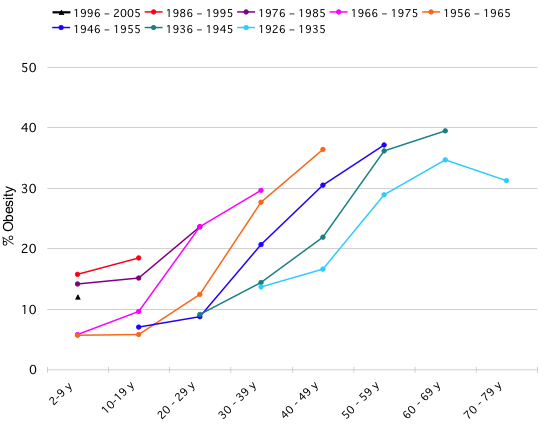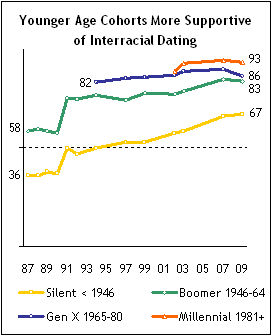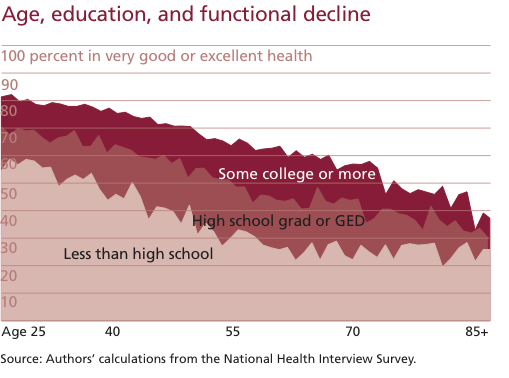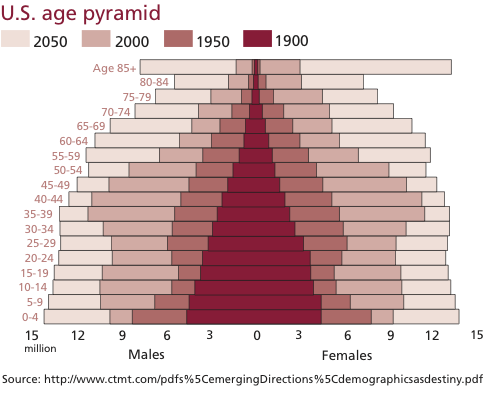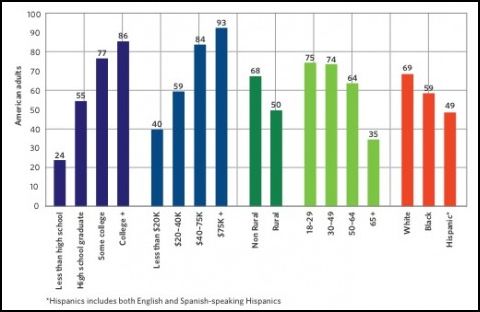This graph, from Flowing Data, shows the obesity rates of different generational cohorts as they age. Each differently colored lines represents people who were born in different decades (between 1926 and 1935 and on up). Ascending lines represent higher percentages of obesity. Horizontal progress represents age.
So, first things first: rates of obesity go up as a cohort ages.
What else?
People born after 1975 are starting out with higher rates of obesity than people born between 1956 and 1975.
And.
Obesity rates seem to rise at a pretty consistent rate as cohorts age. So, if a cohort starts out with a high rate of obesity, they will have an ever higher rate 10 years later, and an even higher rate ten years after that, and so on.
The consequence: Higher rates of obesity overall for each cohort that follows the last.
The data for the most recent cohort, born between 1996 and 2005, however, looks like it might be bucking the trend.
Lisa Wade, PhD is an Associate Professor at Tulane University. She is the author of American Hookup, a book about college sexual culture; a textbook about gender; and a forthcoming introductory text: Terrible Magnificent Sociology. You can follow her on Twitter and Instagram.

